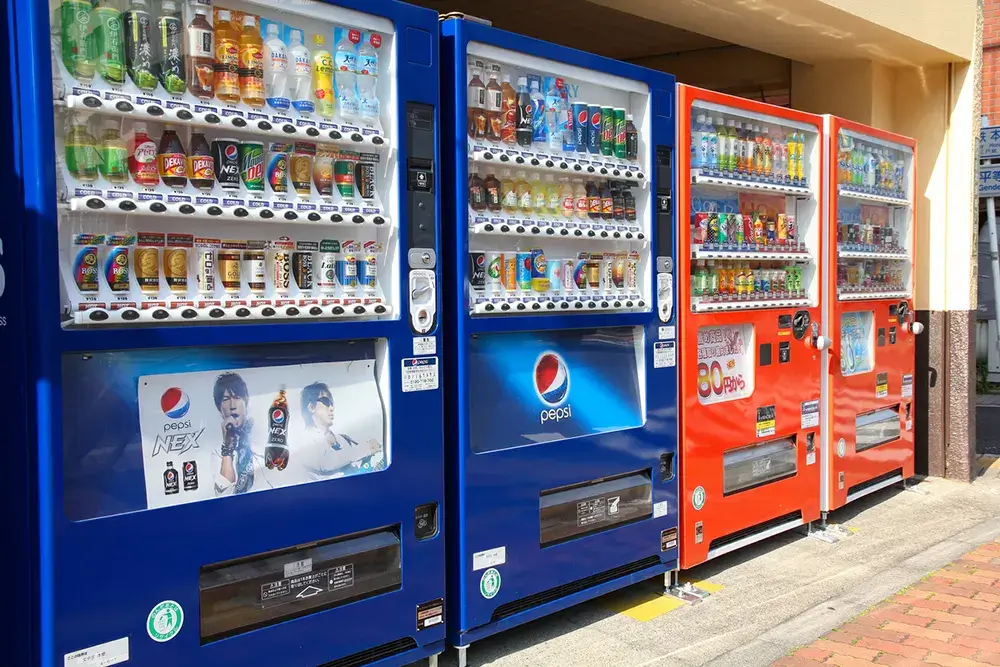Thinking about starting a vending machine business? It’s a smart idea! Vending machines are a great way to earn a steady income without needing to work long hours. With some planning and effort, you can build a business that works for you. This guide will take you through the steps of starting and running a successful vending machine business.
1. Learn About the Vending Machine Industry
Before jumping in, it’s important to understand how this industry works. Here’s what you need to know:
- Demand for Vending Machines: Look into areas where vending machines are in demand. Popular spots include schools, gyms, hospitals, and offices.
- Types of Machines: Choose from snack machines, drink machines, combo machines, or even machines selling niche products like personal care items or gadgets.
- Profit Margins: Snacks and drinks usually have a high profit margin, but specialty items can sometimes make even more money.
2. Plan Your Business
A clear business plan will help you stay on track. Here’s what to include:
- Target Customers: Decide who your machines will serve and where they’ll be placed.
- Business Model: Will you own your machines or lease them? Consider your options.
- Startup Costs: Outline how much you’ll need for machines, stock, permits, and transportation.
- Earnings Estimate: Think about how much you expect to make from each machine.
- Marketing Plan: Figure out how to find good locations and convince property owners to let you place your machines there.
3. Set a Budget
Starting small? That’s okay! Just make sure you have a budget in place. Key costs include:
- Machines: A new machine costs $3,000 to $10,000, but you can get a refurbished one for $1,000 to $3,000.
- Stock: Filling your machine with snacks or drinks will cost around $200 to $500 per machine.
- Permits: Depending on your location, permits can range from $10 to $250 per year.
- Maintenance: Keep some money aside for repairs and regular upkeep.
4. Pick the Right Machine
Not all vending machines are the same, so choose carefully:
- Ease of Use: Look for machines that are reliable and accept cash, cards, and mobile payments.
- Size and Fit: Pick a machine that works well in the space you have.
- Products: Think about whether you need snack machines, drink machines, or a mix of both.
5. Find the Best Location
The location of your vending machines can make or break your business. Here’s how to find good spots:
- High-Traffic Areas: Places with lots of people, like schools, offices, and gyms, are ideal.
- Talk to Owners: Approach property managers or business owners with a pitch on how your vending machine will benefit them.
- Check Competition: Avoid overcrowded areas unless you can offer something unique.
6. Stock Smartly
The right products can make a big difference in sales. Here are some tips:
- Know Your Customers: Tailor your products to the audience. Health-conscious customers may prefer protein bars and bottled water, while office workers might like coffee and snacks.
- Monitor Best Sellers: Keep track of which items sell the most and restock accordingly.
- Offer Variety: Include a mix of snacks, drinks, and specialty products.
- Seasonal Items: Adjust your stock based on the season, like offering hot drinks in winter or chilled drinks in summer.
7. Keep Your Machines Running
Maintaining your machines is essential for success. Here’s how to do it:
- Restocking Schedule: Make sure your machines are always stocked with fresh products.
- Regular Maintenance: Check machines often to avoid breakdowns.
- Track Inventory: Use tools or apps to help manage your stock levels.
- Customer Support: Provide a contact number or email for users to report issues.
8. Meet Legal Requirements
You’ll need to follow certain rules to operate your vending machine business legally:
- Business License: Get a license to run your business.
- Tax Permits: Register for sales tax if required in your area.
- Health Standards: Follow local rules, especially for food and drink items.
- Contracts: Sign agreements with property owners for clear terms and conditions.
9. Spread the Word
You don’t need a huge marketing campaign, but a little effort can go a long way:
- Social Media: Share pictures of your machines and products on platforms like Instagram.
- Networking: Connect with local businesses to find new locations.
- Referrals: Offer a bonus to existing clients for recommending new spots.
- Branding: Add your logo and contact details to your machines.
10. Expand Your Business
Once you’ve mastered the basics, think about growing your business:
- More Machines: Invest in additional machines for new locations.
- New Products: Try out fresh ideas, like healthy snacks or unique items.
- Smart Features: Upgrade to machines with inventory tracking or cashless payment options.
- Hire Help: As your business grows, consider hiring someone to assist with restocking and maintenance.
11. Monitor Your Progress
Keeping track of your business performance will help you improve. Pay attention to:
- Machine Revenue: See how much each machine is making.
- Stock Movement: Monitor what sells quickly and what doesn’t.
- Customer Feedback: Listen to what your customers say and make adjustments.
- Expenses and Profits: Calculate your profits after deducting all costs.
FAQs About Starting a Vending Machine Business

How much can I earn from a vending machine?
It depends on location and products, but a single machine can make $50 to $400 per month.
Do I need a license to start?
Yes, you’ll likely need a business license and possibly permits for sales tax or food safety.
Is this truly passive income?
Not entirely. You’ll need to restock, handle maintenance, and manage operations.
Can I start small?
Absolutely! Many people start with one or two machines and expand as they earn more.
What are the risks?
Common risks include theft, low sales, and maintenance issues. Planning and preparation can reduce these risks.
Final Thoughts
Starting a vending machine business can be a rewarding venture if you plan carefully and manage it well. Focus on finding great locations, stocking quality products, and keeping your machines in top condition. As you grow, keep exploring new opportunities to maximize your success.





